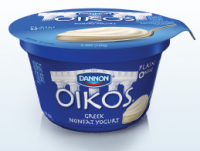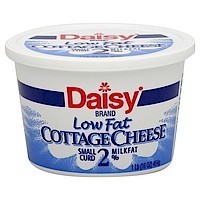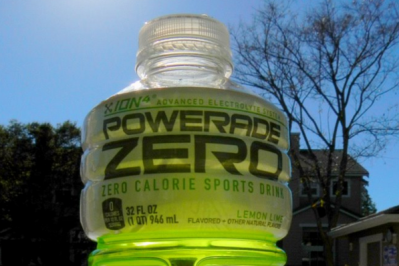Dannon, Daisy, LAG deny reported titanium dioxide nanoparticle use

In response to reports, the three US dairies have denied that titanium dioxide nanoparticles are added in any way to Oikos Greek Plain Yogurt, Daisy Brand fat-free cottage cheese, and Sorrento mozzarella cheese Stringers.
Last month, Friends of the Earth published Tiny Ingredient, Big Risks - a report on the use of nanotechnology in the food sector, which included a list of food products that feature in the Project on Emerging Nanoparticles’ (PEN) Consumer Product Inventory.
Dairy products manufactured by Dannon, Kraft, LAG, Daisy, Albertsons, and Shamrock Farms were added to the PEN Consumer Products Inventory in 2013 following the publication of an Arizona State University study, Titanium Dioxide Nanoparticles in Food and Personal Care Products.
DairyReporter.com approached Dannon, Kraft, Lactalis, Daisy Brand, Shamrock Farms, and Albertsons to query their reported use of titanium dioxide nanoparticles, which are widely used as a whitening agent.
First to reply was Michael Neuwirth, senior director of public relations, Dannon, who said the company was “surprised…given the fact that we don’t use this ingredient.”
“…despite what has been reported we do not use any ingredients in Dannon Oikos plain yogurt that contain titanium dioxide," said Neuwirth. "The ingredients we use to make this product are yogurt cultures and fresh milk, which is naturally white.”
“My understanding is that this ingredient may be used as an added color, and in the event we use an added color in our products, we label it as such."
Given that titanium dioxide was not added, Neuwirth questioned how the Arizona State University result was achieved.
“We are unfamiliar with the methodology used in the data collection and how reliable the findings are,” he said.
“Misconception”
Alongside Oikos Greek Plain Yogurt, Daisy Brand Fat-Free Cottage Cheese was among the 90 products analysed during the Arizona State University study.
Julie King, marketing manager, Daisy Brand, denied that titanium dioxide nanoparticles were used in the product and said that since being informed will seek to “correct their misconception.”
“Daisy Brand does not use any titanium dioxide nanoparticles in its products,” said King.
“We would like to know the details of where you have received this information, so that we can reach out and correct their misconceptions and understand where they’re getting their bad information,” she added.
LAG, whose Sorrento brand Mozzarella Stringster cheese was also analysed, said it is also “currently looking into the Arizona State University study on which the Friends of the Earth report is based.”
“We can confirm, however, that we do not add titanium dioxide into the Mozzarella Stringster cheese,” said Alain Gerard, vice president of quality and innovation, LAG.
DairyReporter.com approached Paul Westerhoff, one of the four cited authors of the Arizona State University study for comment but no reply was received prior to publication.
No responses were received from Kraft or Albertsons. Shamrock Farms, meanwhile, referred DairyReporter.com to the International Dairy Foods Association (IDFA).
"Unregulated, unlabeled"
The use of nanoparticles, a microscopic particle with at least one dimension less than 100 nanometres, by US food manufacturers is regulated by the US Food and Drug Administration (FDA).
The FDA does not require food manufacturers to label the use of nanoparticles, but has acknowledged that "evaluations of safety or effectiveness of FDA-regulated products that include nanomaterials or otherwise involve the application of nanotechnology should consider the unique properties and behaviors that nanomaterials may exhibit."
In its report, Friends of the Earth raised concerns about "a 10-fold increasing in unregulated, unlabeled 'nanofood' products on the American market over the past six years."
"In 2008 we found eight food and beverage products with nano-ingredients on the market. In 2014 the number of nanofood and beverage products we know to be on the market has grown to 94," the report said.








